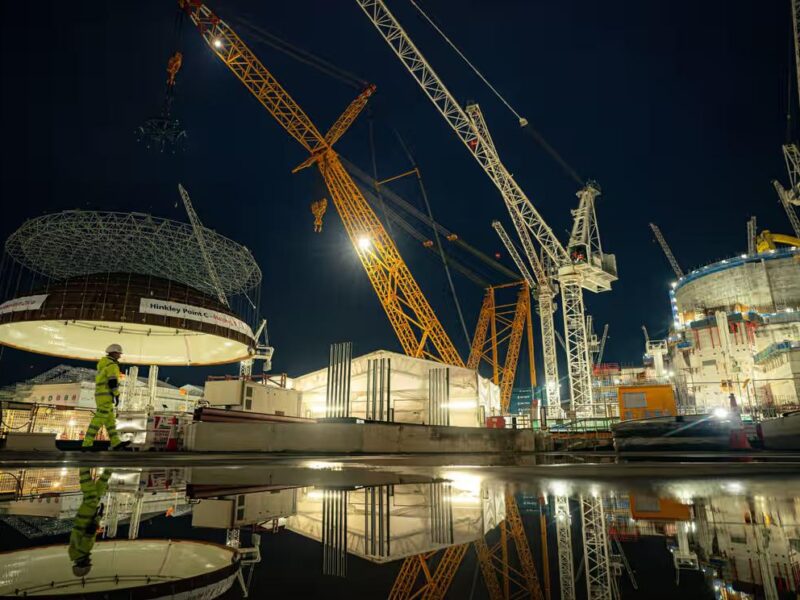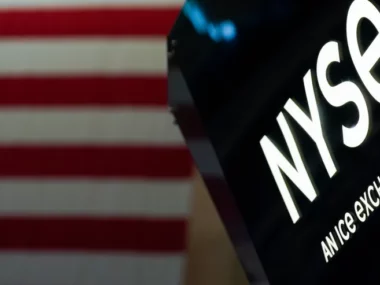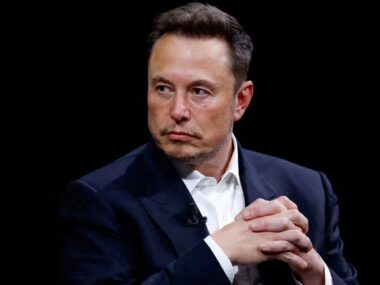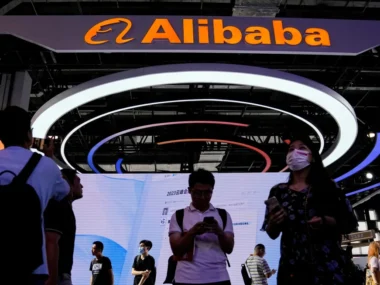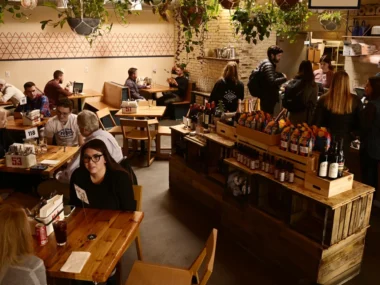As nuclear facility is struck by more delay, the true cost will be far greater after inflation is incorporated, as the proposal utilizes pricing in 2015.
Hinkley Point C’s owner has blamed inflation, Covid, and Brexit for the nuclear power station project’s potential four-year delay and £2.3 billion increase in cost.
The Somerset facility, which has been under construction since 2016, is now projected to be completed in 2031 at a cost of up to £35 billion, according to France’s EDF. However, after inflation is factored in, the cost will be far higher, as EDF is using 2015 prices.
The latest in a series of setbacks causes a significant delay in the project’s original timeline. In 2007, then-EDF CEO Vincent de Rivaz stated that by Christmas 2017, turkeys would be roasted with electricity generated at Hinkley. When the project was eventually approved in 2016, its anticipated cost was £18 billion.
“Like other major infrastructure projects, we have found civil construction slower than we hoped and faced inflation, labour and material shortages, on top of Covid and Brexit disruption,” said Stuart Crooks, the project’s managing director, in a note to employees.
Crooks stated, “Running the project longer will cost more money, and our budget has been impacted by rising civil construction costs.” It is vital to note that British consumers and taxpayers will not pay a penny, with the higher costs borne exclusively by shareholders.”
EDF had earlier stated that the first reactor unit at the nuclear site will be completed by June 2027, with a 15-month buffer period expected to be required, bringing the completion date to September 2028, and another year for the second unit. Its cost was initially anticipated to be between £25 billion and £26 billion, but this was later increased up to £32.7 billion in February 2023.
EDF provided three possibilities that ranged from becoming operational in 2029 to delays pushing this back.
It estimated that the cost of completing Hinkley will be between £31 billion and £34 billion, but if completion is delayed until 2031, the cost will jump to £35 billion.
China General Nuclear, EDF’s project partner, announced in December that funding for Hinkley had been terminated. The move occurred after the government acquired CGN’s interest in Hinkley’s proposed sibling site, Sizewell C in Suffolk, depriving the Chinese state-owned corporation of its involvement in the project.
The most recent financial estimates are based on accounting statistics from 2015, which means the final cost of the project could be significantly higher when inflation over the last decade is taken into consideration. Hinkley’s exorbitant prices have sparked outrage among French taxpayers, who are footing the bill.
Hinkley Point C and Sizewell C are expected to usher in a new era of nuclear facilities, as promised by the government.
Last year, the government established a delivery entity, Great British Nuclear, to speed up the development of new nuclear plants. Earlier this month, ministers announced plans for the “biggest nuclear power expansion in 70 years”.
However, the Hinkley Point C delay will raise questions about project delays and prices, as well as capabilities in an industry that is expected to meet a quarter of national electricity demand by 2050.
Crooks wrote: “The dome lift occurred 24 months later than we had intended when we began in 2016. The global epidemic accounted for 15 months of the delay. So, excluding Covid, we’ve lost nine months since we began. That isn’t perfect, but it’s not bad for the first nuclear plant completed in the UK since 1995.
Crooks stated that the project was “well past the halfway mark” and that “many risks are now behind us”.
EDF announced in January that it would postpone the closure of four of its UK nuclear reactors for at least two years while increasing investment in its British nuclear fleet.

